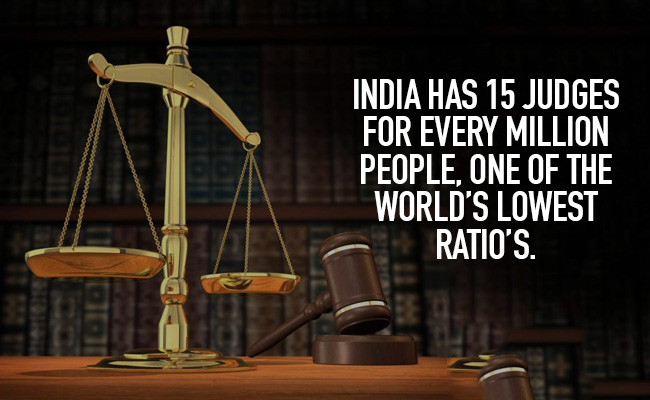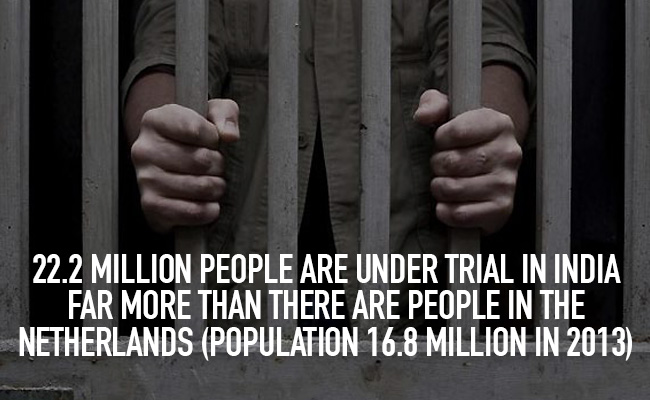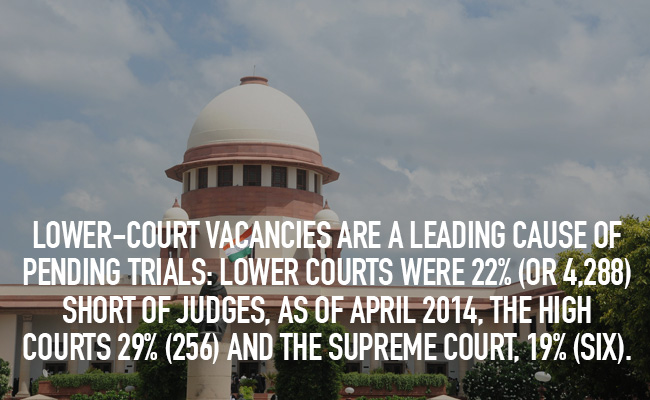Judicial System And India

The never-ending stockpile of cases, the scarce number of judges and the deadlock between the collegium and the government over appointment of judges indicate the urgent and immediate need for judicial reforms.
India is entangled between two paradoxical visions of the Nation- a progressive constitutional one and a conservative one. Each with its own view and ideas of the role of the judiciary. The ultimate struggle between these two viewpoints has a profound indication for the country’s judicial system.

Unbelievably, India is not only lacking in economy, GDP or development but also in the number of Judges and the number of cases. No one can deny the statement Chief justice of India that India has too few judges. China today has over two lakh judges for a population slightly more than that of India. Even after an explosive growth in judge strength in India in the last decade, India has some 10% of the number of judges that China has and only to some 66% of the judges of the USA.

Delayed cases are equivalent to denied cases. What is the factor that makes our country face a backlog everywhere at every point of time? Yes. Everyone is overworked and we cannot burden the judges so much that they start facing mental illness because of hearing so many cases, which are either too trivial or worthless. If I have to quote a case, it would be the case where a man filed a court suit against “God”. What on the hell, was the man trying to do? In addition, most of the impending cases are similar to that type. However, a judge can hear every single pointless case. Firstly, this situation of people filing unnecessary cases must be ended, for this; a solution could be by fining the people who file such pointless cases. Secondly, there must be full and efficient use of technology, that is, every court must have a database to enter the cases and a program to filter the less important or worthless cases. These cases must be solved via logic on the computer itself. Thirdly, there must be a significant increase in the number of judges recruited.

Most of the times the important or worthwhile cases are dumped because of the worthless and diacritic ones. This should be filtered and organization is surely the key!
 Proposals for judicial reform, including to increasing the number of judges, must not be seen in isolation. The fundamental struggle over the competing vision of India has profound implications for the country’s judicial system. Expanding the number of judges as the CJI demanded is essential for strengthening the progressive, democratic vision of India. The vision for judicial reforms in India and the performance metrics of the judicial system should consciously support the vision of India. Lawyers, law teachers, and judges should play a significant role in bringing about the democratic social transformation envisaged in the constitution.
Proposals for judicial reform, including to increasing the number of judges, must not be seen in isolation. The fundamental struggle over the competing vision of India has profound implications for the country’s judicial system. Expanding the number of judges as the CJI demanded is essential for strengthening the progressive, democratic vision of India. The vision for judicial reforms in India and the performance metrics of the judicial system should consciously support the vision of India. Lawyers, law teachers, and judges should play a significant role in bringing about the democratic social transformation envisaged in the constitution.






